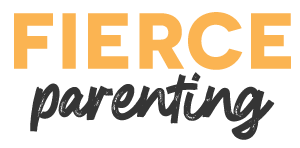“Modern education has been plagued by utilitarianism for a very long time, and both teachers and students have come to think that school should teach only what will be useful in the pursuit of a career.” —Karen Glass (Consider This)
Two Questions to Always Ask
I’m grateful to my parents for so many things, but if I were to name one thing that has impacted me most— second only to their constant presentation of the gospel— it would be their tutelage in always asking the question, “Why?”
That question has always stood at the heart of my decisions, a constant check on my motives and thought processes. Followed quickly with the words my mom asked me almost every morning: “Will you serve God or yourself?”
The default for most people is to move through life on autopilot. To wake, eat, buy, consume entertainment, to work, to live without thinking about what we are doing. That is, until something goes wrong. Few people are asking themselves: “Why am I watching this show? Why am I buying this pair of shoes? Why am I working?” And even fewer people are asking, “Is my aim to glorify myself, or God?”
Christianity is Not Passive
Do you see where I’m going with this? If not, hang in there— I promise I’ll bring it back around to home education soon!
As Christians, this mode of thinking— or lack thereof— prevents us from living faithfully. If we are to live life eating and drinking to the glory of God (1 Cor. 10:31), certainly we must probe the motives behind our daily actions. And we must submit ourselves to pursuing God in all things. A passive consumption of the world is unacceptable if our aim is to glorify the God who bled for us. Christianity is not passive.
As Alan Noble writes in his book Disruptive Witness: “To live well in a modern world requires constant reassessment of how our society and technology are shaping us.”
We have to look behind our actions and choices to determine whether they are in obedience to Christ, or a result of passive absorption of the thinking of our age. We often don’t recognize how we have adopted cultural norms that are contrary to a Christian worldview, simply because we do not think about them at all.
Sift Home Education Through the “Why” Filter
How does this apply to home education? Firstly, we must ask ourselves: “Why educate?”
As I’ve mentioned in previous posts, we do not educate for careers, honor, or money as our ultimate aim. Vocation is an outcome of education, but in itself it is not the ultimate aim for Christians.
We educate for the glory of God above all else.
As Christians we have to recognize this, and root ourselves in this reality, allowing our decisions to flow from this first, before any other secondary issue.
We educate for the glory of God above all else.
But we can continue to use “Why?” to strengthen our home education, to formulate our educational philosophies in ways that honor God, to tailor-fit our approaches to our unique families and communities, and to bring peace to our homes.
The beauty of educating at home is that we have the final say in all areas of our children’s education. We can ask “Why?” of every habit we encourage, every curriculum we choose, and every extracurricular we pursue.
We can ask ourselves, “Why do I teach my children poetry?” and answer, “Because beautiful language honors God, and when it is written on our hearts we can turn it to praise Him. We can learn to understand His own words better as poetry is one of His means of communicating, as in the Psalms, Ecclesiastes, Job, and Colossians 1. We can learn to weave language expertly so that we can communicate truths about God in fresh and beautiful ways to help draw others to Him.”
We can inquire, “Why do we learn only when sitting at the table with an open workbook?” Perhaps we’ve adopted the erroneous idea that learning is confined to a classroom. Upon this realization, we can scrap such a narrow view of learning and open up our entire lives as educational grounds.
We can ask, “Why do I want my children to learn piano?” and perhaps answer, “Because music is a simple way to bless a church family, and a beautiful way to communicate when language does not suffice.” Or maybe, “Because they love it, they are passionate about it, and I want to teach them to use this passion to God’s glory.”
We can ask, “Why should my children learn to play a sport?” and maybe our reasons are, “Because sports are a great equalizer, and an easy way to make connections with people and develop friendships.”
We can ask “Why?” of our schedule, and alter it according to our familial needs or our individual children that perhaps do better with only three days of formal work, as opposed to five.
We can ditch curriculum that isn’t working, take breaks when needed, encourage play and childhood joy, and infuse Bible reading throughout our entire day— simply by asking ourselves “Why?” and adjusting where we see the need.
Allow for Ebb and Flow
Our answers may shift and change. We will prioritize some things over others depending on our interests, the natures of our unique families, the communities we serve, and our individual children.
We may take a break from piano because we have a new baby and the added appointment adds unnecessary strain to our relationships or prevents us from serving those outside of our home.
We may be a family who deeply loves science, and so scientific inquiry takes precedence over literature more often.
We may live in a state that doesn’t allow home educated children to participate in athletics and so we may have to prioritize education over the advantage of sports, or creatively find alternatives.
We may be in a season of financial strain, and so we may not pursue any extracurriculars at all.
What we pursue will ebb and flow, and change with the seasons of life. But we can always ask ourselves “Why?” Indeed, we must always ask it.
Don’t Lie to Yourself
Above all else, as we ask ourselves about our motives, we must, as Dostoevsky wrote in The Brothers Karamazov, “never lie to [ourselves].”
We must answer honestly.
If I’m teaching my children something because it makes me look good, or checks off a resume, I have to be willing to delve into my heart— to ask humbly, to answer honestly, to repent and change course accordingly.
I have to be willing to adjust my goals in a renewed submission to God’s aims, not worldly ones.
So ask yourself “Why?” and don’t lie to yourself.
share this
FREE RESOURCE

Get the Family Vision eBook
Build unity and gain Gospel-centered clarity for life's big and small decisions. Download our 54 page eBook, Crafting Your Own Family Vision Statement by filling out the form below.
We’ll never sell your info. Unsubscribe any time.
about the author
Lydia Schaible
Lydia is mother to four young children through whom she's found great joy in unexpected places. She loves to encourage others toward this joy in raising their children intentionally and wholeheartedly committed to Christ. Between read-alouds and toddler-paced hikes, she writes in an effort to draw others to beauty, truth, and goodness that ultimately points us to our Creator and Savior. Her roots are in the PNW but following her husband's career in medicine she's been transplanted to the American South. Together they aim to love God and neighbor through the local church and a hospitable home.





